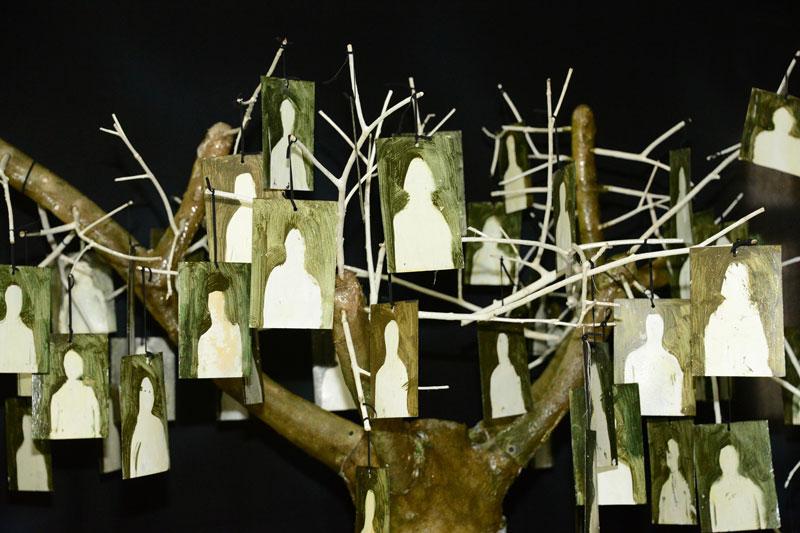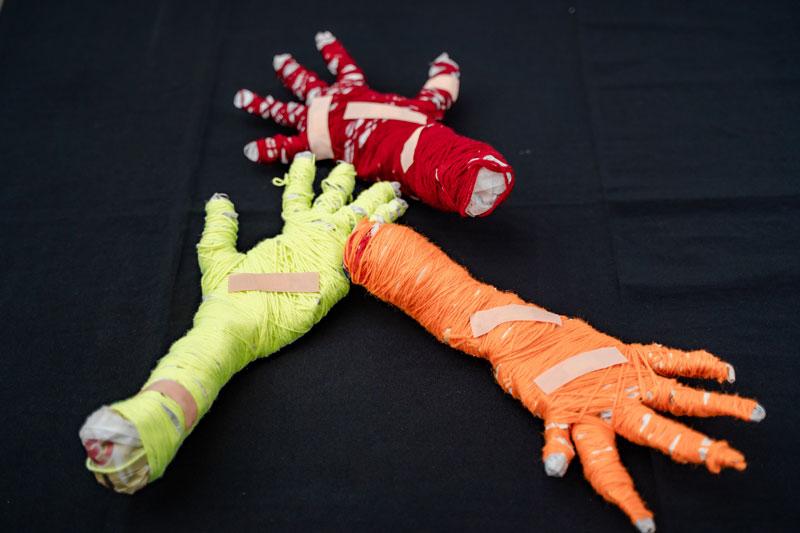Reply To:
Name - Reply Comment
Last Updated : 2024-04-19 22:36:00
Expressing his views on the importance of preserving memory at a Roundtable Discussion organised by the Centre for Equality and Justice (CEJ) on ‘The Missing Link’: Women and Youth Unite to Reconcile through Memory, George Cooke, Academic at the Bandaranaike Centre for International Studies (BCIS) explained, “I have met students where, when I say July 1983, they ask “July 1983? What about it?” [They] Who may not know, may have not experienced it and may not understand it.”
Sri Lanka is still recovering from the aftermath of the civil war and the political insurrections. In order to progress with communal healing, it is important to remember and memorialize the loss of loved ones and engage in the process of Transitional Justice, ensuring that the reality of what happened and why, is contemplated. The incidents Sri Lanka has witnessed are proof that Youth play a pivotal role and their awareness and education of our history is paramount in this context.
International Institute for Democracy and Electoral Assistance states; “.... Reconciliation is both a goal - something to achieve - and a process - a means to achieve that goal.” (2003). It is an evolving process of healing and transition, and Memorialization is deemed a way to realise this objective. Dr. Menik Wakkumbura of University of Colombo, Sri Lanka believes that they go hand in hand; “The two words, Memorialization and Reconciliation have a remarkably close link”.
Presenting at the Roundtable Discussion, the late Dr. Malathi de Alwis, socio-cultural anthropologist and feminist scholar, described Memorialization to be a process of preserving memory about people, events, places and objects and that it involves mental exertion and social practices and networking.
The difference of context we are seeking here is a deviation from the widely known understanding of Reconciliation, to a rather practical and grounded lens into a post-war society. Shyamala Gomez, Executive Director of CEJ, at a panel discussion on ‘Preventing and Addressing Conflict-Related Sexual Violence (CRSV) as a Tool of War (hosted in partnership by The Secretary’s Office for Global Women’s Issues, Search for Common Ground, and Georgetown Institute for Women, Peace, and Security) stated, “Women need tangible results”. This perspective to Reconciliation is often overlooked and misunderstood, but is the most pragmatic as, when exploring war and conflict affected areas and communities, it is evident that it is women who have been left to suffer the most losses, both physically and psychologically. Dr. Ganga Dissanayake, Academic at University of Kelaniya, Sri Lanka, emphasized this at a two-day discussion organised by CEJ with a group of selected women and female youth representatives from six districts. She explained how initially, the role of women in conflict situations has often been misinterpreted or minimized. Therefore, it is salient to ensure that in the discourse of Memorialization, light is shed on the Woman, and that her narrative is captured effectively.
Experts all around the world point out interesting and interactive methods to educate the Youth on the subject, most of which are hands-on and thought-provoking in nature. Academia at the Roundtable Discussion pointed out a few ways currently in practice; directed museum visits and related film reviews to encourage research and discussion were mentioned to be two forms of assignments.
In the purview of formal education, Academics from the Open University of Sri Lanka mentioned that they offer a course promoting Social Cohesion to BA students. Further, academics from the Faculty of Arts and Culture of the South-Eastern University of Sri Lanka laid out in detail how mandatory courses on Social Harmony and Multiculturalism are offered to undergraduates despite their field of education. They went on to highlight the gendered perspective to it; “All these subjects’ content includes the aspect of women, women participation in peacebuilding processes and the importance of women and women’s participation in all the processes of peacebuilding/ peace-making/ reconciliation. At the same time, we are teaching our students how international communities can empower local women and women in post-conflict situations.”
However, a conundrum arises as to whether a textbook method of teaching these subjects would suffice in reaching the ultimate goal of instilling these concepts in the Youth. Given its practical nature, it is most effective if Memorialization is incorporated into education in methods which are the closest to human emotions. These are the memories and experiences of real people, whose emotions and narratives need to be studied cautiously and that cannot be conveyed through mere text. Expanding on this, at the Roundtable Discussion, the late Dr. Alwis presented some examples of teaching instruments that can be utilized to surmount this experience.
The study of Archived memory from a people’s perspective to place memory in a broader narrative of the 70 years of independence, where she highlighted the importance of extending the current scope of study of a post-independence Sri Lanka.
Travelling History museums which are settings of archival memory and exhibits tend to be an experience of both physical and mental stimulation. Students get the opportunity of not only witnessing memory exhibits which are very personal and weighted but also to closely engage and interact with volunteers to discuss these realities.
Given the internet-friendly generation of the present day, Memory sites which function as a virtual map of the country signposts sites of violence. Students are able to browse through this website to find actual photographs, testimonies and documentations of the real-life incidents which had taken place in the respective sites.
Memory walks which is a method of field study that gives a multi-faceted grassroot narrative to students. This exercise gives students the opportunity to have a look into the reality of a layman in each given community. These are guided walks through communities of different areas, facilitated by volunteers.
Human Libraries which provide a more intimate setting with up-close one-on-one conversations with the older generation who have been first-hand victims of the war and insurrections of the country. These volunteers share their experiences with students and allow space for dialogue and study.
Incidentally, a rather significant aspect was addressed by Dr. Wakkumbura, on the conceptualization of curricula relating to Memorialization to achieve Reconciliation; “As per my expertise from working on the ground with the academia, I strongly believe it is extremely important to educate the Youth on this subject. However, we need to be mindful when bringing back memories from 12 years ago; its appropriateness and sensitivities, as opposed to the ‘discipline’ of Memorialization to achieve Reconciliation, and re-evaluate our objectives of doing so”.
This is crucial given the nature of wars and conflicts this country has seen through the years. Different communities own up to different narratives, and the acknowledgement and acceptance of all is essential in the process to achieve Reconciliation, and this needs to be facilitated starting at pedagogy. Academic at University of Kelaniya, Sri Lanka, Sabreena Niles highlighted this; “Students need to understand the subjectiveness of memories based on various intersections and the possibility of a simultaneity of multiple memories rather than one generic or hegemonic narrative of victory, starting from the classroom.”
If the goal is to internalize these realities in the Youth, Memorialization needs to be institutionalized, through both formal and informal means of education. Thus, acceptable mechanisms should be implemented for all narratives of affliction to be able to be met midways, because as CEJ affirms in their publication ‘Women. Memory. Reconciliation.” (2019), “The fires of war may no longer be ablaze, but its embers still glow”.
Kamini Rathnayake, Intern, The Centre for Equality and Justice.





Add comment
Comments will be edited (grammar, spelling and slang) and authorized at the discretion of Daily Mirror online. The website also has the right not to publish selected comments.
Reply To:
Name - Reply Comment
On March 26, a couple arriving from Thailand was arrested with 88 live animal
According to villagers from Naula-Moragolla out of 105 families 80 can afford
Is the situation in Sri Lanka so grim that locals harbour hope that they coul
A recent post on social media revealed that three purple-faced langurs near t